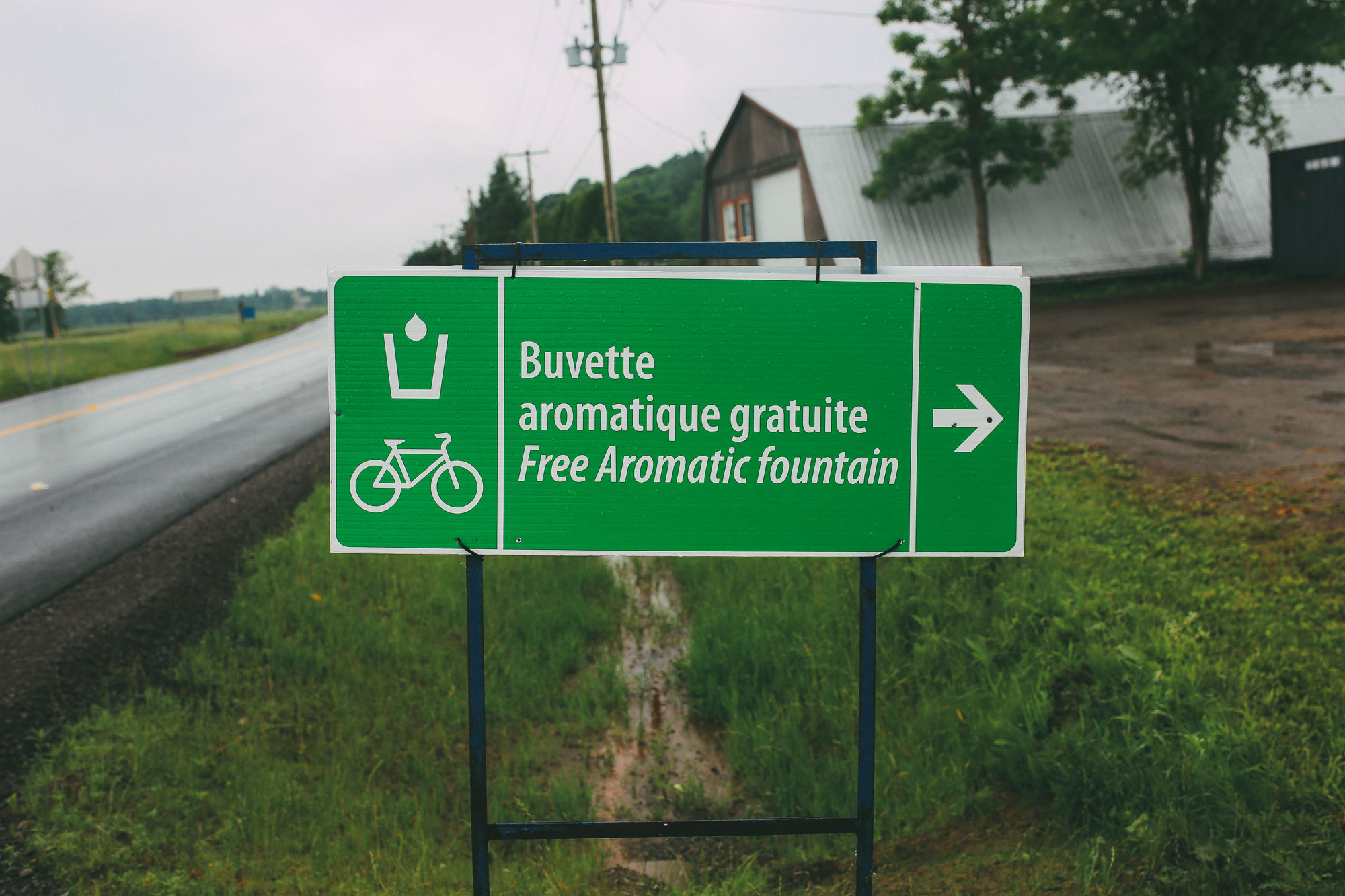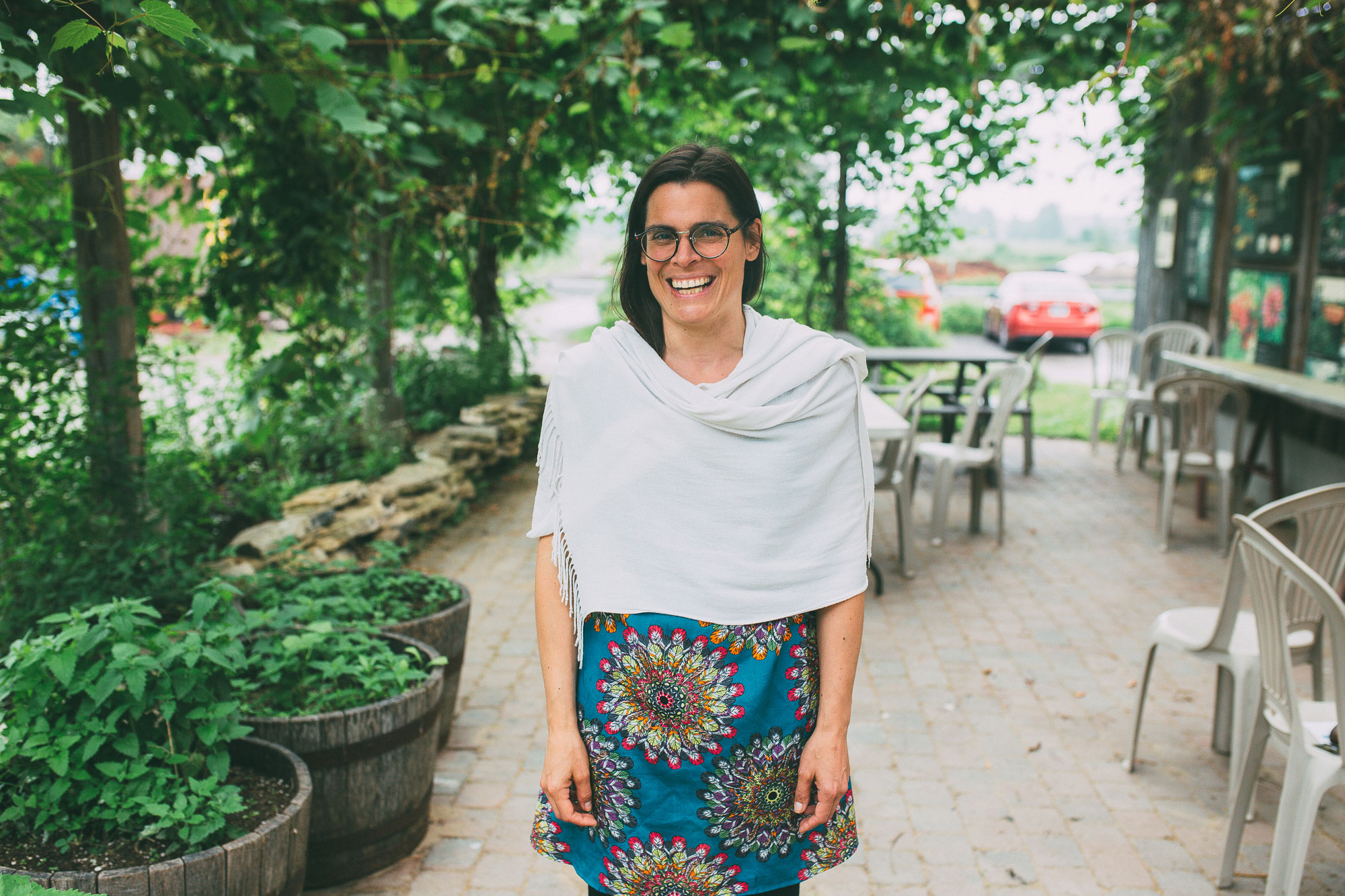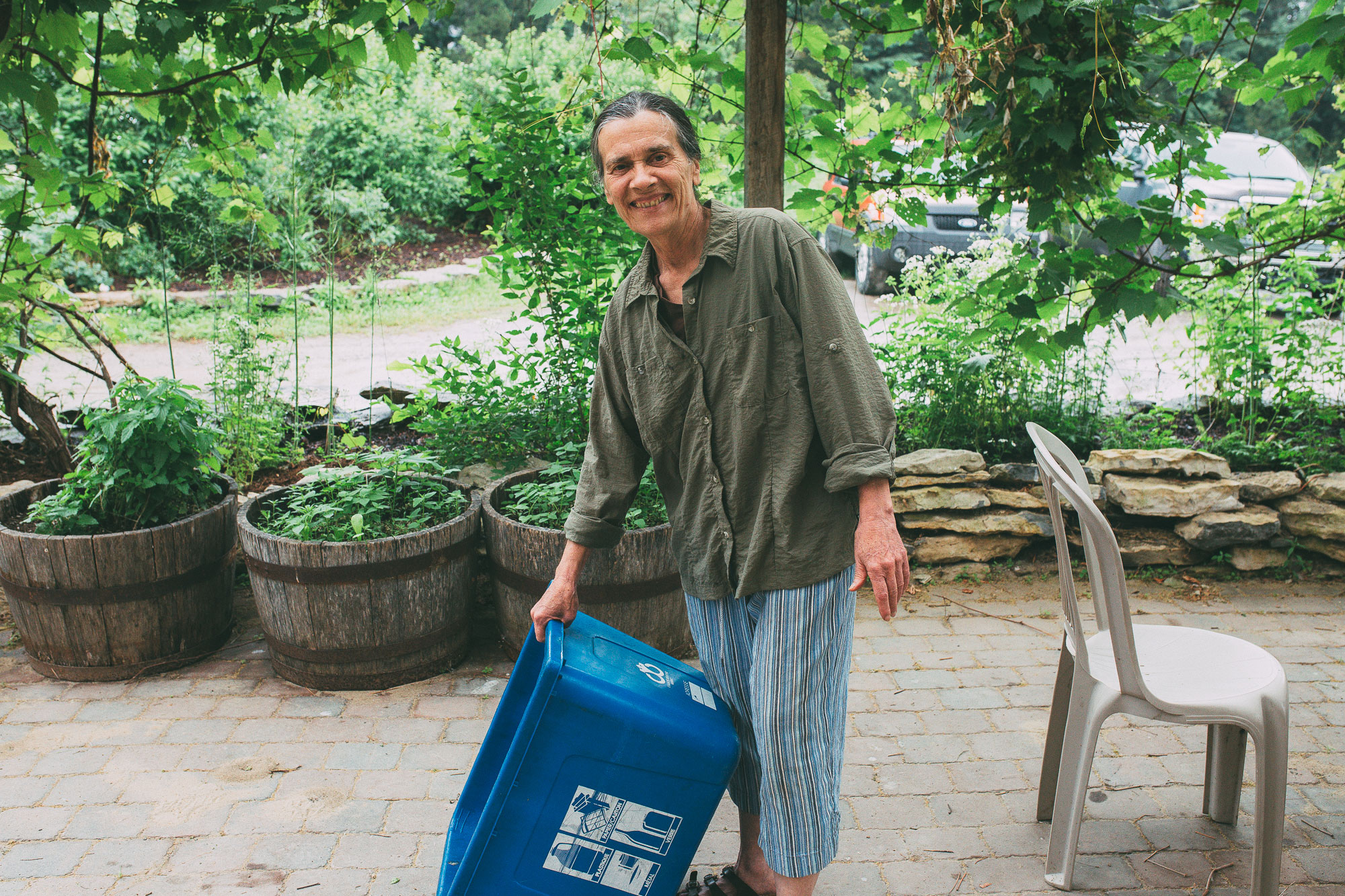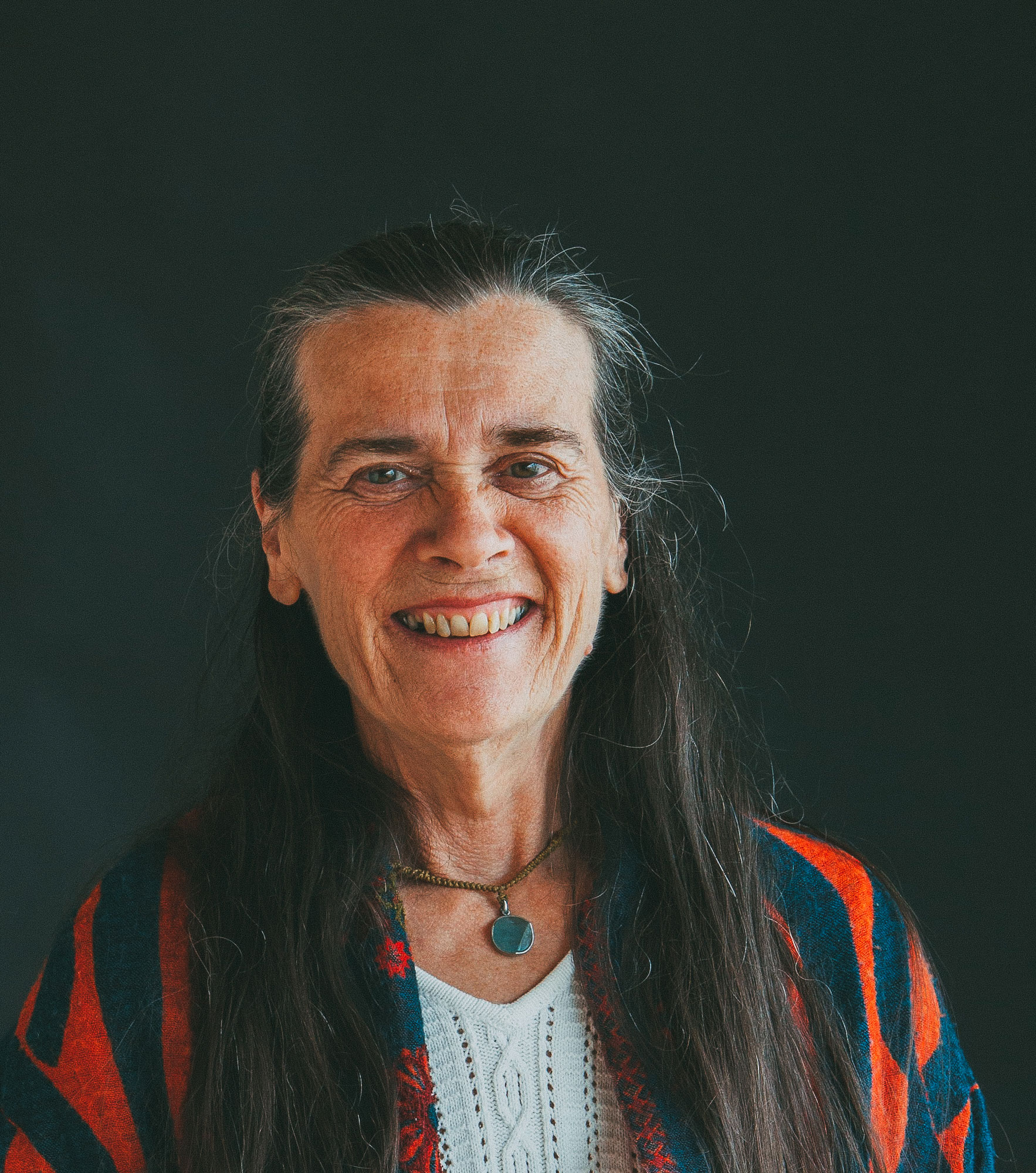“Free aromatic fountain,” the sign read. I pulled onto the highway shoulder and stared at it. Aromatic fountain? After a moment, I turned into the wet gravel driveway, half-expecting to come across a Greek fountain of youth among the plant-covered buildings.

It turned out to be Aliksir, a local organic essential oils distillery. Stepping into the boutique was an interesting experience in and of itself. I saw the giant vats and learned about the distillation process, practiced the French names of the different wild and cultivated plants they source from throughout Québec, and was guided through the benefits of aromatherapy from the oils of trees that I knew well and had grown up with since I could walk.
Maybe because I was visiting slightly outside of tourist season, or because it was a rainy day, or just because they’re always welcoming; in any case, Hélène was kind and more than happy to answer my questions.

I asked Hélène if she was the owner, and she said no, that it had been Lucie Mainguy who started the company nearly 30 years ago. It occurred to me that meeting Lucie would have been really great, but it didn’t occur to me to ask to meet her. As I was packing up to go, however, who should walk by but Lucie herself, carrying a recycling bin in the light rain.
“Madame Mainguy!” I called out. “J’espère que vous allez bien.”
Talking with Lucie was more impactful than I could have imagined. To begin with, she built Aliksir from a project based out of her house to a well-respected operation with regular clients and 30 employees. From the beginning she committed to organic agriculture, and in 2011 she transitioned the distillery from burning oil to biomass. Lucie’s commitment to ecological sustainability earned her the Prix Phénix, the highest environmental distinction in Québec.
But all that was said and done, and she had her eyes firmly set on the future—not the future of the company so much as the future of the planet. She was clearly someone for whom thought was inextricably linked with action; someone who faced challenges head on, feet on the ground. She was a unique mix of visionary and realist. “The solutions are simple,” she remarked.
“We know the problems. Everyone in the world knows the problems. We need to start focusing on solutions.”
“Our toilets are a tragedy,” she said. “Water processing plants don’t work, septic systems don’t work. The St. Lawrence is getting more polluted every year. And it doesn’t make any sense. We put our human waste into water, then spent billions of dollars trying to take it back out.” Problem, meet action. Lucie has prototypes of toilettes sèches, dry toilets, to make use of human waste in a more effective way. Think terra preta.
Or heating in Canada, a huge source of greenhouse gas emissions. Lucie’s developing a soil-based solar heat capturing system. I’m not including details about it because she said it’s not ready to be shared, but, she said, it is possible.
“All the companies, they want complicated solutions. They want solutions that cost money. They’re very quick to criticize systems that don’t put them in control. So it is necessary that I have all the scientific proof of what I do.”
“C’est nous qui décidons le possible.”
“Let me get this straight,” I said. “You founded an organic essential oils business and built it from the ground up, then you transformed it into an autonomous energy system, plus you raised a family, you’ve developed toilets that solve our waste water crisis and you’re working on solar-based heating technology?”
She grinned with the brío of someone who shows with no signs of slowing down. “Ça continue.”


(As I mentioned in a recent log entry, my camera had been damaged by the rain and wasn’t operating at full capacity, so my photos aren’t as high quality as I’d like—hence the photo of Lucie that I pulled off the Aliksir website.)
I know many young people involved in climate activism to whom I look when I need a sense of hope for our planet’s future. That kind of hope isn’t always easy to come by. I certainly didn’t expect to find it in the rain outside a distillery on the shore of the St. Lawrence River. But I did. Lucie had that hope all around her, from the mint plants beside the driveway to the engineering designs for her next major project. Her ideas held as much determination as those young people I know with their eyes fiercely on the future.
I’ve met politicians and diplomats involved in climate action, but as important as international leadership is there’s a part of me that says I met someone who is already redefining our future—and she was carrying a recycling bin in the rain.